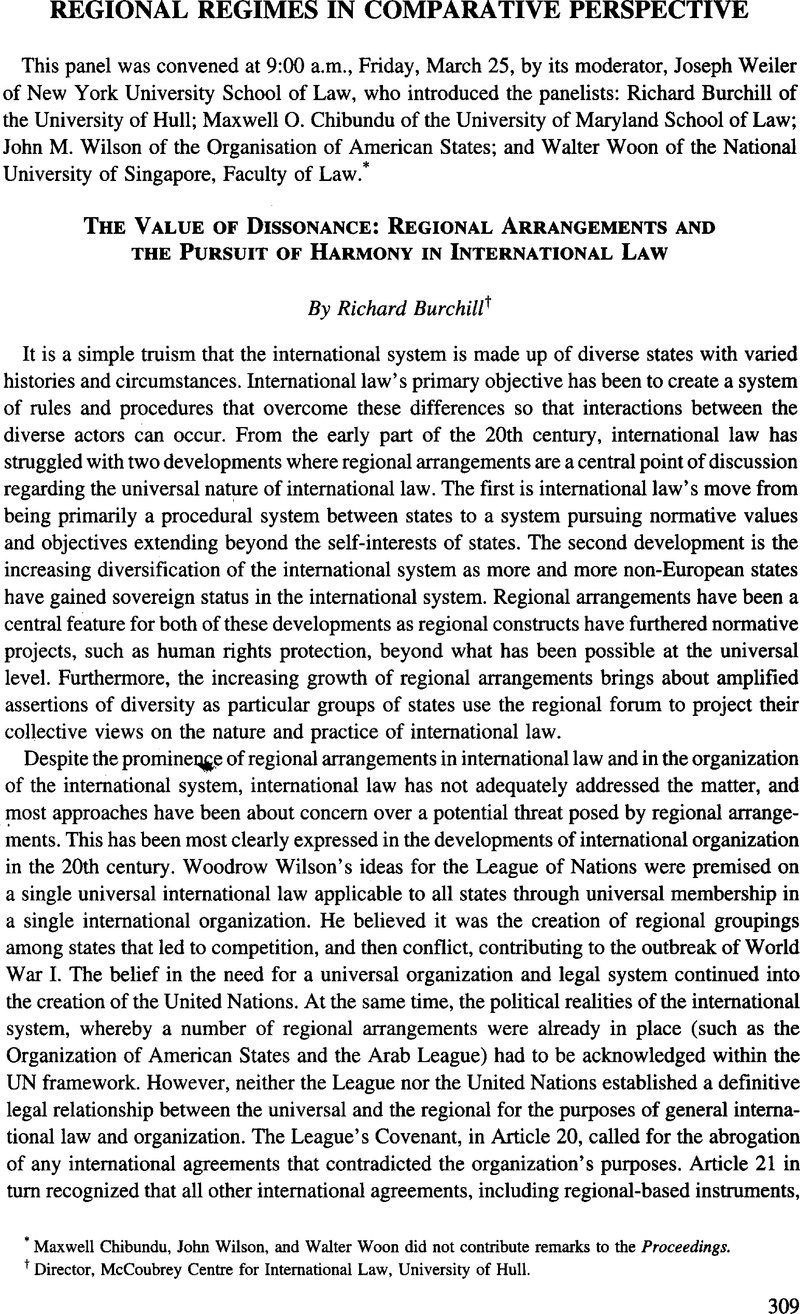No CrossRef data available.
Published online by Cambridge University Press: 28 February 2017

1 See ILC, Report of the Study Group on Fragmentation of International Law: Difficulties Arising from the Diversification and Expansion of International Law, para. 10, U.N. Doc. A/CN.4/L.676 (July 29, 2005); ILC, Fragmentation of International Law: Difficulties Arising from the Diversification and Expansion of International Law, Report of the Study Group of the International Law Commission Finalized by Mariti Koskenniemi, paras. 195-96, U.N. Doc. A/CN.4/L.682 (Apr. 13, 2006) [hereinafter Koskenniemi Report].
2 Koskenniemi Report, supra note 1, at paras. 10, 13.
3 U.N. Secretary-General, An Agenda for Peace, Preventive Diplomacy, Peacemaking and Peace-Keeping: Rep. of the Secretary-General, paras. 16, 65, U.N. Doc. A/47/277 (June 17, 1992).
4 Id. at para. 64.
5 Rep. of the U.N. High-Level Panel on Threats, Challenges and Change, A More Secure World: Our Shared Responsibility, para. 94, U.N. Doc. A/59/565 (Dec. 2, 2004).
6 Id. at para. 272.
7 G.A. Res. 60/1, para. 170, U.N. Doc. A/RES/60/1 (Oct. 24, 2005).
8 Jennings, Robert, Universal International Law in a Multicultural World, in Liber Amicorum for the Rt. Hon. Lord Wilberforce 50 (Bos, Maarten & Brownlie, Ian eds., 1987 Google Scholar).
9 Military and Paramilitary Activities in and Against Nicaragua (Nicar. v. U.S.), Merits, 19861.C.J. 14, para. 263.
10 See Lavranos, Nikolaos, Revisiting Article 307 EC: The Untouchable Core of Fundamental European Constitutional Law, Values, and Principles, in Shaping the Rule of Law Through Dialogue: International and Supranational Experiences 119 (Fonatanelli, Filippo, Martinico, Giuseppe & Carrozza, Paolo eds., 2010)Google Scholar.
11 Anghie, Antony & Chimni, B.S., Third World Approaches, in the Methods of International Law 209, 209 (Ratner, Steven & Slaughter, Anne-Marie eds., 2005 Google Scholar).
12 Koskenniemi Report, supra note 1, at 254.